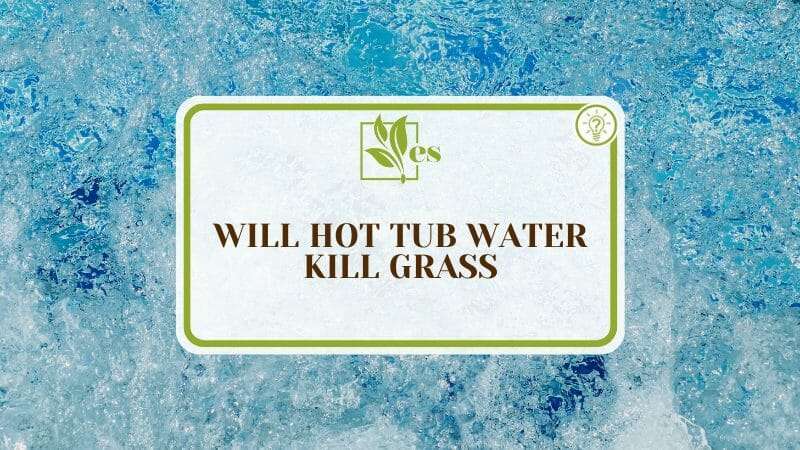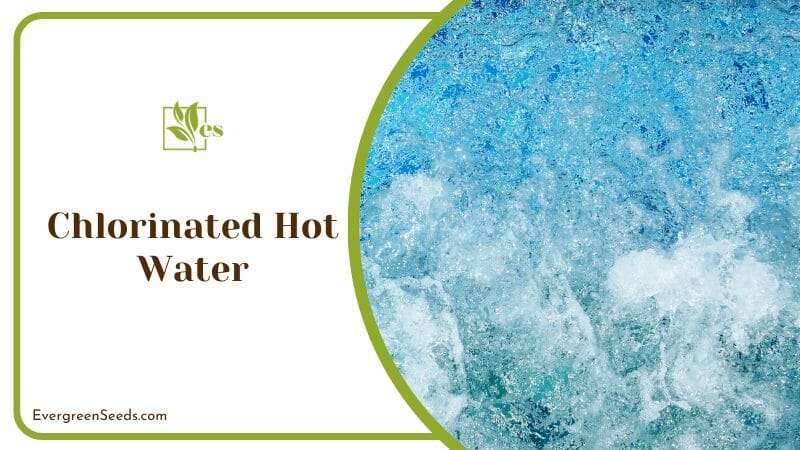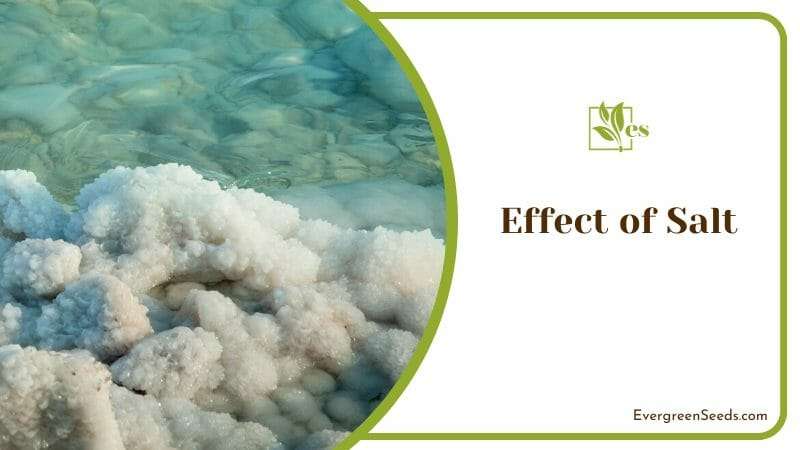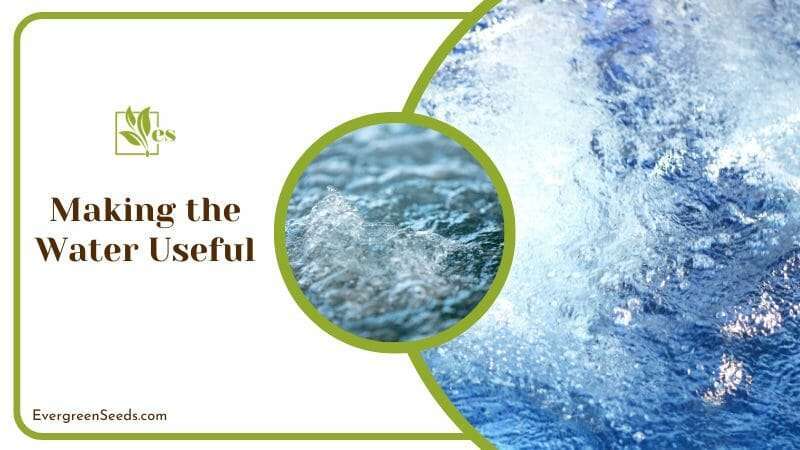Will hot tub water kill grass if used to water lawns? Your bi-annual hot tub drainage and cleanup might be coming up, which makes you wonder whether that water can be recycled on the lawn.

This article will discuss whether tub water kills grass and how best to utilize it after draining. You will also learn how to properly drain old water from a hot tub without spilling it needlessly on the lawn.
JUMP TO TOPIC
Will Hot Tub Water Kill Grass?
💥 No, hot tub water will not kill grass on the first application, but will harm the grass. However, if you have a saltwater hot tub or water that has been added chlorine or bromine, the water is more harmful and may kill it.
– Chlorinated Hot Water
An amount of chlorine greater than two parts per million in any type of soil can burn grassroots. Most hot tubs contain chlorinated water to disinfect and make them safer for human use.
If you don’t use chlorinated water in the hot tub, you will have frequent skin infections because of bacterial and fungal buildup, this is why chlorine is very important to be used in tubs and even in pools.
Occasional water splashes from your tub to the neighboring lawn grass will not kill it, because these splashes have too little of this element. It is not that powerful and toxic as the diesel is on the grass.

Chlorine is beneficial for grass development and growth in small and diluted amounts, as it is diluted with water, in this case. However, you must note that some larger splashes of water on the grass will deliver too much chlorine for the grass’s liking and get damaged.
As for when it is draining the entire tub out onto the grass, your grass is at risk of dying or sustaining chemical burns. Chlorine levels in hot water from the tub must be under 0.1 parts per million to be safe for grass while draining. Otherwise, redirect the draining water towards the street instead.
On another note, you might one day accidentally spill a large quantity of chlorinated water on the grass. In this case, you must immediately wash it down with copious volumes of fresh water. This might not protect the grass from chemical burns sustained on first contact with hot water, but it will wash away residual chlorine from the soil.
– Effect of the pH of Hot Water
The pH of water draining from a tub or swimming pool into the lawn can change the pH of the soil. Almost all grass types need slightly alkaline soils to germinate and grow properly. The pH of the hot tub draining water needs to be between 7.0 to 7.8 so that the soil remains alkaline.
However, if the water is acidic, it will turn the soil acidic, too, resulting in the grass suffering and sometimes even perishing. Checking the pH of pool or tub water is no big deal. Just dip a pH paper in it and use the measuring scale provided to see what range your water falls into.
Unless the water is alkaline, you should refrain from pouring it on the grass. Fully grown trees and shrubs are more tolerant of slight changes in the soil’s pH, and you can pour tub water with slightly decreased pH around them instead.
– Effect of Salt
Saltwater is harmful to plants and grass and tends to stay in the soil for a long time. Excessive salt in the soil draws water out of the grassroots and dehydrates them, and in the long run, the damage will be vast. The latter is because it disturbs the pH of the soil, which then interferes with the absorption of nutrients by the grass.
Eventually, salt water will kill grass from lack of water and nutrients. For many people who live in coastal areas, saltwater might be their only option for lawn care.
If you can afford it, we suggest you invest in distilled water or fresh water to give your grass and other plants in the lawn. Even rainwater collected during rainy days is better for grass health than salt water.

Planting a salt-resistant variety of grass will tolerate being watered with salty water once a week. However, salty water from a hot tub will add too much salt to the lawn and kill all grass and even some plants growing there. However, soon after the spill, you will notice your grass turning yellow, brown, and wispy in random patches.
That is why you must never empty your saltwater tub into the lawn because all tubs would definitely contain salt particles. In case of accidental spills, flush out the salt with fresh water. Rake the top layers of the soil and mix fresh sand into it. These remedies might help dilute spilled salt in the soil.
– Bromine
Bromine concentration in hot water needs to be under two parts per million for it to be safe for grass. When there is more bromine than this in the water, your grass will certainly die at the same moment. Bromine accumulates in the soil and within the grass parts, killing it over time.
The thing about bromine is that it is also harmful to plants and trees growing around the lawn. Even large trees with fully established roots suffer when watered with bromine water. Unlike chlorine, bromine does not evaporate over time and tends to stay in water for a long time, it is not volatile. Never, in any instance, pour brominated water on any plant, tree, or grass.
Many people prefer disinfecting their hot water with bromine instead of chlorine. It is more costly, but does a much better job killing bacteria than chlorine. The lifespan of bromine is much longer than chlorine, which would make the high-cost worth it.
What Are Better Uses of Tub Water?
Better uses for tub water would be to water the plants that can thrive with water acidity of 7.0 to 7.8. Cycle the water and cool your driveway if the sun is heating them, especially in summer. Lastly, you can always use this water to wash your car.
Don’t want to drain hot tub water into the driveway or the sanitary sewer and waste all of it? We are right there with you on this one. We get a lot of queries on how to dispose of hot tub water. There are so many ways you can recycle this water and redirect it someplace more useful.
If you use clean and fresh water in the tub, then this water can be given to the lawn. Just check to see that the pH of the water is between 7.0 to 7.8 because of the grass-like, slightly alkaline pH. Established trees and shrubs in the lawn are more tolerant of higher salt and chlorine levels in the soil and can be hydrated using this water.
Recycle all this water in the summer to cool your house down. Water the foundations of your home and the asphalt in the driveway to cool it down. If you live someplace with scorching hot summers, then this is the method you need to go for.
What better way to use water from a draining tub than to wash your car? Just redirect the draining end of the gardening hose toward your driveway and clean the car.
– Making the Water Useful
These tips and tricks you can employ to remove as much chlorine from the water in the tub, and making this water useful. You can safely use this water on the grass if your lawn needs it.
Firstly, stop adding chlorine to the water for at least two days before draining it, in this case you may even stop adding it about a week prior still.

If chlorine levels are not below 0.1 parts per million on a draining day, run the tub with its cover off.
The good thing about chlorine is that it dissipates quickly into the air, especially if the water is hot. Soon the water will be safe enough to drop over grass, provided it is not salty or acidic. Are you planning to use Baking soda on your grass to remove weeds? Make sure to read our guide first.












